Welcome to one of the most active flamenco sites on the Internet. Guests can read most posts but if you want to participate click here to register.
This site is dedicated to the memory of Paco de Lucía, Ron Mitchell, Guy Williams, Linda Elvira, Philip John Lee, Craig Eros, Ben Woods, David Serva and Tom Blackshear who went ahead of us.
We receive 12,200 visitors a month from 200 countries and 1.7 million page impressions a year. To advertise on this site please contact us.
|

|
|
Playing level consistency
|
You are logged in as Guest
|
|
Users viewing this topic: none
|
|
Login  | |
|

   
MikeC
Posts: 79
Joined: Mar. 19 2015
From: Panama (living in South Florida)

|
 RE: Playing level consistency (in reply to sig) RE: Playing level consistency (in reply to sig)
|
|
|
It is interesting that a lot people that are now into flamenco used to play metal when younger. Similar to you I started taking guitar lessons when I was about 12 and quit after less than a year.
I picked up the guitar again when I was 14-15 years because I was interested in Iron Maiden, Black Sabath/Ozzy/Randy Rhoads, etc...When I was 16, my friend's dad lent me an album, he said "listen to this, this is real guitar playing!" followed by "don't scratch it" with a stern voice. It was Sabicas Flamenco Puro! When I got home I started listening to the LP and my jaw dropped! I couldn't believe my ears! I was in awe and shock! I thought: this is not humanly possible! I called my parents excited to my room so they could listen to it. For weeks I tried to figure out what he was doing but i had no clue.
My parents agreed to pay for lessons again even though I didn't show enough interest when I was 12 and quit after less than a year. They found a classical guitar teacher. He was a really nice old man who had been something like the Director of Classical Guitar at the National Conservatory of Panama. I learned a lot from him, but mainly classical guitar. I asked him about flamenco and he agreed to teach me "some flamenco" warning me that he only had very superficial knowledge. I learned a couple of solea falsetas without any knowledge of compas. A couple of months later he became very ill and passed away. That left me devastated.
Shortly after, I started pursuing other interests like surfing and a new girlfriend and the guitar was put aside. Then medical school, internships, residency, marriage, kids, life..... I kept playing guitar on and off during all this time, mostly electric and steel string. But I've always been fascinated and intrigued with flamenco guitar since listening to Flamenco Puro. About 2 years ago I got the urge to learn flamenco guitar again. I bought a couple of books and dvd's and tried to learn on my own achieving very little progress. Thanks to this forum I got in contact with Andy Culpepper who built me a beautiful guitar and with Ricardo Marlow who's been teaching me for the past few months. As I said before, finally I feel that I am on the right path!
Mike
|
|
|
|
REPORT THIS POST AS INAPPROPRIATE |
Date Jul. 7 2015 23:51:23
 |
|

   
Bulerias2005
Posts: 632
Joined: Jul. 10 2010
From: Minneapolis, MN

|
 RE: Playing level consistency (in reply to MikeC) RE: Playing level consistency (in reply to MikeC)
|
|
|
quote:
ORIGINAL: MikeC
Daniel,
How do you practice? do you just go over a piece? do you do any exercises or drills?
At this point, I'm still learning flamenco technique, so that means practicing different rasgueados, arpeggios, thumb techniques, etc. I basically play the few falsetas that I know using all the above techniques. I try to improvise a little but I haven't internalized the flamenco compas yet. I wonder if "exercises" like in "pumping Nylon" would be beneficial.
Mike
I don't have a formal practice regimen. I remember working through the Giuliani arpeggios ~10 years ago, and the speed bursts that Ricardo mentioned are helpful, but I am firmly in the "99% of technical exercises are superfluous" camp. I have always worked through repertoire -- exercises here and there, especially to develop a particular technique (e.g., rasgueado or alzapua), but never on a regular basis. I think it's important to keep in mind that practicing slowly almost always does *NOT* translate to playing at full speed (most are not aware of this).
Nowadays, practicing entails either getting a concert program together, playing through existing repertoire to make sure I don't forget it, and arranging/composing new material. So honestly, I would just keep refining the techniques you're working on while working on repertoire!
_____________________________
Daniel Volovets
Jazz, Classical, Flamenco, & Latin-American Guitar
http://www.danielvolovets.com/
|
|
|
|
REPORT THIS POST AS INAPPROPRIATE |
Date Jul. 10 2015 22:54:22
 |
|

  
Ruphus
Posts: 3782
Joined: Nov. 18 2010

|
 RE: Playing level consistency (in reply to Bulerias2005) RE: Playing level consistency (in reply to Bulerias2005)
|
|
|
quote:
ORIGINAL: Bulerias2005
I am firmly in the "99% of technical exercises are superfluous" camp. I have always worked through repertoire -- exercises here and there, especially to develop a particular technique (e.g., rasgueado or alzapua), but never on a regular basis.
Apparently, such a method seems to work for some lucky guys (it did for my cousin and obviously for you), but under general didactical terms it seems like the worst advice one could be giving to a beginner. (With one exception: Being surrounded by inspiring gitanos all the time, which in a way was the case for my cousin who was friend with guitarists from Ecuador.)
Other than that my experience (who for the first decades did not practise at all, but just spontaneously do what it took to play music) has been that just playing lets you only imprint the unergonomic routines most everyone unschooled tends to have, and have them reinforced to no end, until it would take you ages trying to cancel them out, if at all.
For the majority of cases it should mean to perfectly sabotage one´s possible progress.
The diametral and recommendable opposite would be to have a didactically versed and inspiring teacher. Ideally from the very start.
And this:
quote:
ORIGINAL: Bulerias2005
I think it's important to keep in mind that practicing slowly almost always does *NOT* translate to playing at full speed (most are not aware of this).
ought to be the biggest didactical contradiction I ever read.
Ask the 5% of musicians who came to focal dystonia through strain and blockage of fast & wrong technique.
Ruphus
|
|
|
|
REPORT THIS POST AS INAPPROPRIATE |
Date Jul. 11 2015 0:43:18
 |
|

   
Bulerias2005
Posts: 632
Joined: Jul. 10 2010
From: Minneapolis, MN

|
 RE: Playing level consistency (in reply to MikeC) RE: Playing level consistency (in reply to MikeC)
|
|
|
Ruphus, you completely misunderstood my point. I am referring to the muscular differences between playing slowly and playing quickly. Strain and blockage is a consequence of fast and wrong technique, as you yourself noted... but not correctly learned, fast technique. If one is left to their own devices, yes, one's "unergonomic routines" will be reinforced. But not if one has "didactically versed" teachers who know the instrument and teaching well enough to realize that suffocating their students with endless exercises is just a convenient way to kill an hour's worth of time and make some money without actually having taught much. This is a very inconvenient truth that, understandably, the majority of guitar instructors do not want to discuss.
Not relying on technical exercises has nothing to do with luck. I am not "lucky" -- I put in a lot of work and was guided by "didactically versed and inspiring teacher(s)" from the start. I firmly believe in this approach not because it has worked for me, but because it works for all of my students who are passionate about the guitar... and, for that matter, all the passionate students of my instructors.
_____________________________
Daniel Volovets
Jazz, Classical, Flamenco, & Latin-American Guitar
http://www.danielvolovets.com/
|
|
|
|
REPORT THIS POST AS INAPPROPRIATE |
Date Jul. 11 2015 1:02:57
 |
|

  
Ruphus
Posts: 3782
Joined: Nov. 18 2010

|
 RE: Playing level consistency (in reply to MikeC) RE: Playing level consistency (in reply to MikeC)
|
|
|
I see, with the precondition of throughout supervision of skilled teachers, things can certainly work out that way.
To my understanding conveying an as much as possible detailed picture in mind about ergonomic dexterity makes for efficiency in teaching. And ensuring correct execution, maintained while gradually speeding up, helps greatly with achieving seamless fast technique.
But I stem from the failed* autodidact fraction, and from there focussed insights on how not to do.
(* Originally, apparently having belonged to the guys who come to physiologically useful ways unconsciously, though after some years got lost when having seen the ergonomically awkward posture of a famous classical player; unfortunately thinking that would be how to do.)
Such an approach is being different from starting out from an all inspiring (ergonomically playing) surrounding, where the student´s unconsciously detailed observation of good performance leads him to great results, even if not always aware of how things are being executed in the minute detail. (Which then is not necessary to be intellectually known.)
Without a doubt, the latter way of learning is the optimal one, and the easiest mentally as advance is being literally playfully.
- And you are not at last an impressive example for how good the method works.
Too bad hence that not everyone can have such an opportunity of ambience and mimicking.
- For those meanwhile who don´t, neat imagination building of ergonomic execution is the next best thing to find.
Ruphus
|
|
|
|
REPORT THIS POST AS INAPPROPRIATE |
Date Jul. 11 2015 3:16:52
 |
|
 New Messages New Messages |
 No New Messages No New Messages |
 Hot Topic w/ New Messages Hot Topic w/ New Messages |
 Hot Topic w/o New Messages Hot Topic w/o New Messages |
 Locked w/ New Messages Locked w/ New Messages |
 Locked w/o New Messages Locked w/o New Messages |
|
 Post New Thread
Post New Thread
 Reply to Message
Reply to Message
 Post New Poll
Post New Poll
 Submit Vote
Submit Vote
 Delete My Own Post
Delete My Own Post
 Delete My Own Thread
Delete My Own Thread
 Rate Posts
Rate Posts
|
|
|
Forum Software powered by ASP Playground Advanced Edition 2.0.5
Copyright © 2000 - 2003 ASPPlayground.NET |
0.09375 secs.
|


 Printable Version
Printable Version












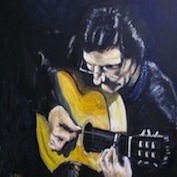
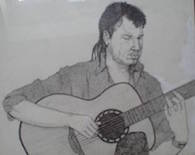


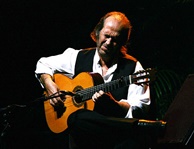
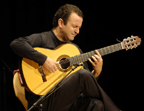
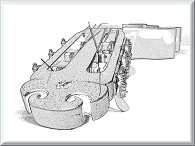
 New Messages
New Messages No New Messages
No New Messages Hot Topic w/ New Messages
Hot Topic w/ New Messages Hot Topic w/o New Messages
Hot Topic w/o New Messages Locked w/ New Messages
Locked w/ New Messages Locked w/o New Messages
Locked w/o New Messages Post New Thread
Post New Thread